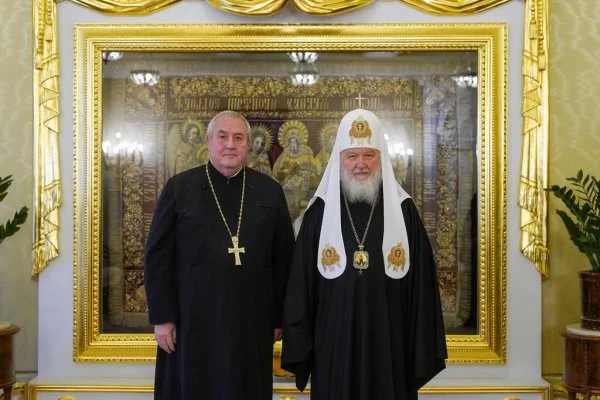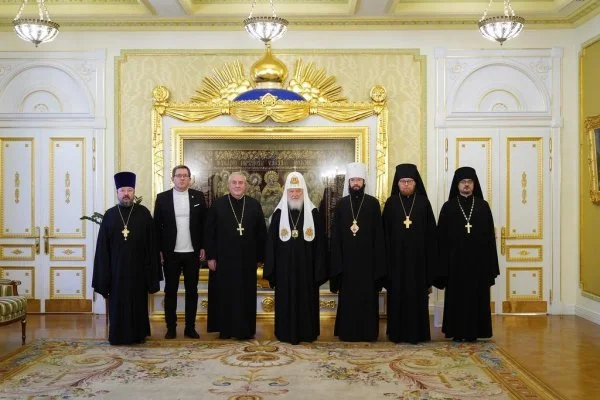- Français
- |
- Booklist
- |
- Week of Prayer
- |
- Links
- Areopagus - a forum for dialogue
- Academic journals
- Acronyms
- Bible tools
- Bibliographies
- Booksellers and publishers
- Churches
- Canadian church headquarters
- Directory of Saskatchewan churches
- Retreat centres
- Saskatchewan church and non-profit agencies
- Ecumenism.net Denominational links
- Anabaptist & Mennonite
- Anglican
- Baptist
- Evangelical
- Independent episcopal
- Lutheran
- Methodist, Wesleyan, and Holiness
- Miscellaneous
- Mormon
- Orthodox (Eastern & Oriental)
- Para-church ministries
- Pentecostal / charismatic
- Presbyterian & Reformed
- Quaker (Society of Friends)
- Roman & Eastern Catholic
- United and uniting
- Documents of Ecumenical Interest
- Ecumenical agencies
- Ecumenical Booklist
- Ecumenical Dialogues
- Glossary
- Human rights
- Inter-religious links
- Justice & peace
- Lectionaries
- Religious news services
- Resource pages
- Search Ecumenism.Net
- |
- Documents
- Ancient & Medieval texts
- Ecumenical Dialogues
- Interreligious
- Anabaptist & Mennonite
- Anglican
- Evangelical
- Lutheran
- Orthodox
- Reformed & Presbyterian
- Roman & Eastern Catholic
- United & Uniting
- Miscellaneous churches
- Canadian Council of Churches (CCC)
- Conference of European Churches (CEC)
- Interchurch Families International Network (IFIN)
- National Council of Churches in Australia (NCCA)
- Lausanne Committee for World Evangelism (LCWE)
- World Council of Churches (WCC)
- Other ecumenical documents
Church traditions
Documents from ecumenical agencies
- |
- Dialogues
- Adventist-Reformed
- African Instituted Churches-Reformed
- Anglican-Lutheran
- Anglican-Orthodox
- Anglican-Reformed
- Anglican-Roman Catholic
- Anglican-United/Uniting
- Baptist-Reformed
- Disciples of Christ-Reformed
- Disciples of Christ-Roman Catholic
- Evangelical-Roman Catholic
- Lutheran-Mennonite
- Lutheran-Mennonite-Roman Catholic
- Lutheran-Reformed
- Lutheran-Roman Catholic
- Mennonite-Reformed
- Mennonite-Roman Catholic
- Methodist-Reformed
- Methodist-Roman Catholic
- Oriental Orthodox-Reformed
- Orthodox-Reformed
- Orthodox-Roman Catholic
- Pentecostal-Reformed
- Prague Consultations
- REC-WARC Consultations
- Roman Catholic-Lutheran-Reformed
- Roman Catholic-Reformed
- Roman Catholic-United Church of Canada
- |
- Quick links
- Canadian Centre for Ecumenism
- Canadian Council of Churches
- Ecumenical Shared Ministries
- Ecumenism in Canada
- Interchurch Families International Network
- International Anglican-Roman Catholic Commission for Unity and Mission
- Kairos: Canadian Ecumenical Justice Initiatives
- North American Academy of Ecumenists
- Prairie Centre for Ecumenism
- Réseau œcuménique justice et paix
- Week of Prayer for Christian Unity
- Women's Interchurch Council of Canada
- World Council of Churches
- |
- Archives
- |
- About us
Patriarch Kirill on war
— Oct. 21, 202221 oct. 2022If you are like me, you have been watching the war in Ukraine with prayers for the innocent civilians caught in the mortar and missile attacks. I vacillate between excitement at the heroic defence of Ukraine by an outgunned and outnumbered civilian army and anger at the Russian war crimes exposed by the Ukrainian advances in recent months. Perhaps the most disturbing news has been the reports of statements from Patriarch Kirill, patriarch of Moscow and leader of the Russian Orthodox Church. Kirill has been reported in numerous statements as defending the war and the Putin regime, supporting the Russkiy Mir doctrine that insists that Ukraine is part of the Russian homeland, and most recently promising Russian soldiers that their deaths would be rewarded among the saints in heaven. This latest has been compared to Pope Urban II’s call for the First Crusade in 1095 in which he preached the first indulgence. Proclaiming a war holy and promising salvation to those who fight has been widely denounced as heresy.
Kirill’s statements have been shared in Orthodox and other Christian networks as a sign that the Russian Church has become an organ of the Putin regime. Pope Francis apparently cautioned Kirill during a phone call not to become “Putin’s altar boy.” In a sign of just how serious Francis considered this, the Vatican unilaterally released an account of the phone call including this phrase. The Moscow Patriarchate protested at the diplomatic breach but did not deny that Francis had used these words.
At the recent World Council of Churches Assembly in Karlsruhe, Germany, the delegates called for the Russian Orthodox delegation to be expelled over the patriarch’s defence of the war. The WCC ultimately did not expel the Russians but issued a public issue statement on the war that expressed concern about the entrenchment of the church within the regime. This week, the WCC acting general secretary, Rev. Dr. Ioan Sauca, who is Romanian Orthodox, visited Moscow to share these concerns and to continue a dialogue that began during the Assembly. News reports from the WCC and other news agencies have reported on the outlines of the meeting, but few have looked closely at the communiqué issued by the WCC which contains significant transcript details and observations on the meeting.
It is not clear how to interpret Kirill’s statements in this recent meeting with Sauca. On the face of it, the communiqué details Kirill’s surprise at how he has been interpreted. His handlers indicate that Kirill has been selectively quoted by Westerners in order to misrepresent him and undermine his authority. Without an extensive examination of Kirill’s public statements, it is hard to know if this is true. If we are to take Kirill’s protestations seriously, he is committed to the principle that no war can be considered holy.
“My theological position to the war? I do not think that any Church or Christian can have a supporting position to wars and killings. As Churches, we are called to be peacemakers and to defend and protect life. War cannot be holy. But when one has to defend himself and his life or to give his life for the lives of the others things look different. We have so many examples in our Christian history. Yet, as peacemakers we have to make all efforts to bring peace through dialogue and avoid any conflict or violence. This is my view.”
The patriarch also clarified that references to a “metaphysical war” which he is quoted as making in the past do not refer to a war between Russia and Western powers but are in reference to Ephesians 6: 12, regarding “dark powers and authorities of the world which confront the values of the Gospel.” These malevolent powers are to be found everywhere, not only in the West, because it is a spiritual warfare.
Kirill also suggested that the conflict in Ukraine is not religious but political, and that the churches have a role in containing the conflict. In this regard, he praised the WCC for its neutrality.
“The times we live in today are very difficult; yet these difficulties do not come from the Churches, but from the political context, and this context constitutes an extreme danger today. Therefore, the Churches today must not add fuel to the fire. On the contrary, we must do everything within our power to put out the fire. In this regard, the World Council of Churches has a very important function. In my opinion, the WCC today has taken the only proper position – active, but neutral – taking no political sides in this conflict. The Churches by nature have a peace-making potential. And if a Church starts waving a flag of war and calling for confrontation, it acts against its nature.”
I want to believe that Kirill is finally speaking out, that he is intentionally distancing himself from Putin, and that he will advocate for the end of the war in Ukraine. I want to believe these things because it is easier to believe that Kirill has been misunderstood than to believe that he is evil. Yet, I am also cautious because we live in an era when it is easy to claim “fake news.” Ultimately, the proof will be in Kirill’s next steps. If he takes further steps to publicly clarify his views and to distance himself from the rhetoric of war, then perhaps this will be a matter left to his biographers. If he continues to allow himself to be used to defend Putin’s war, then he will likely face a similar fate when Putin is deposed. I cannot see the war ending any other way. It is time for Kirill to get on the right side of history, and more importantly, on the right side of the Gospel.
Read this complete WCC Communiqué on the meeting with Patriarch Kirill

 Permanent link: ecumenism.net/?p=12614
Permanent link: ecumenism.net/?p=12614
Categories: News • In this article: Moscow Patriarchate, Patriarch Kirill, Russian Orthodox, WCC

 Lien permanente : ecumenism.net/?p=12614
Lien permanente : ecumenism.net/?p=12614
Catégorie : News • Dans cet article : Moscow Patriarchate, Patriarch Kirill, Russian Orthodox, WCC





